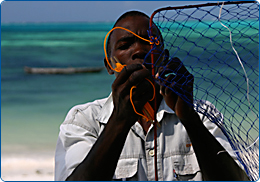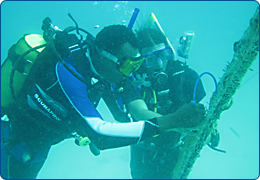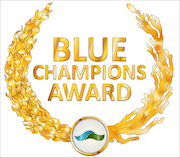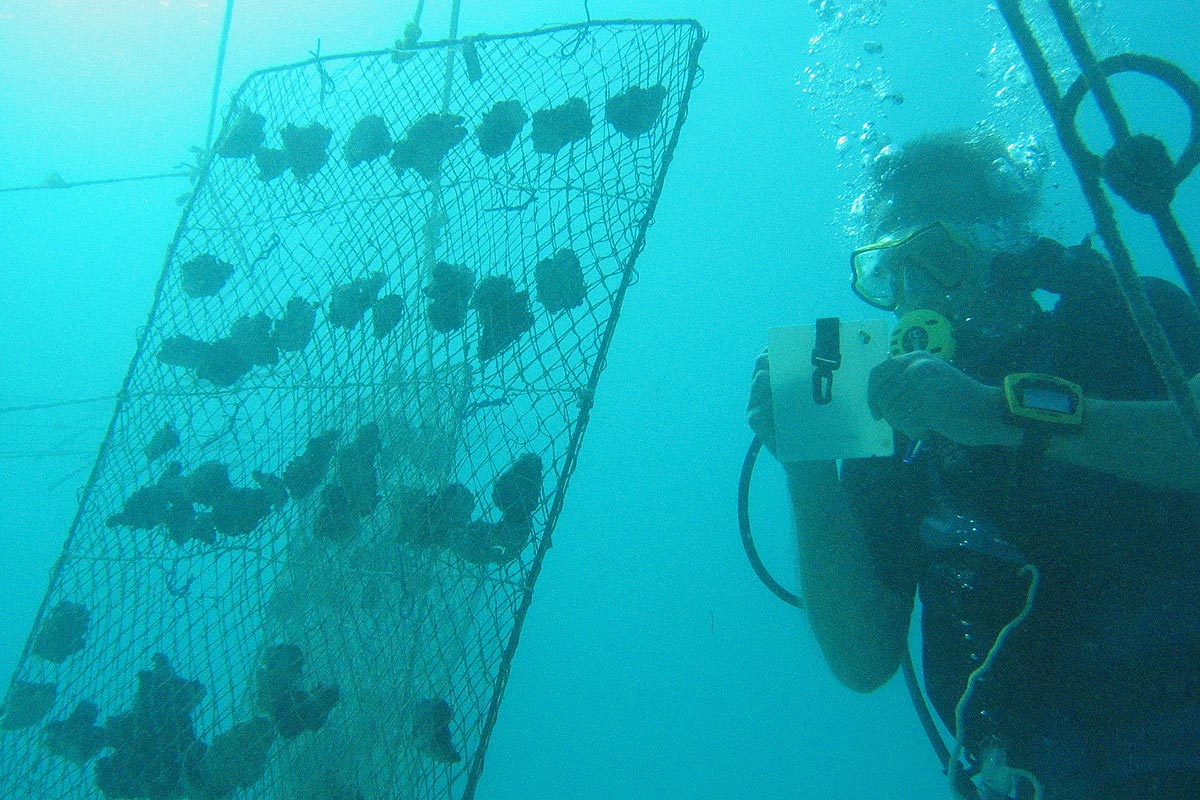June 2010 – August 2010 – Adapting our cultivation method
18.07.2010
With the assistance of Nacho Huelvo, a biologist, marinecultures.org has adapted its cultivation method to the high-current conditions. Local artisans have been retained to create a net panel.
The attachment of net baskets helps prevent the loss of sponge seedling in the face of strong currents. (ref. Farming Sponges to Supply Bioactive Metabolites and Bath Sponges: A Review, Alan Duckworth, 2009). The net panels, which are flooded with fresh water and nutrients have proved to be an ideal habitat for other organisms, including micro algae. However, due to the increasing weight of the panels, we had to fortify the construction of the farm. To this end, thicker strings, two additional buoys, and better anchors were installed.
Meanwhile, Okala has received diving training and is now able to participate actively in the expansion of the farm.
At the same time, marinecultures.org has started an intensive search for commercially viable sponges. The southern part of the east coast, Menai Bay and Chwaka Bay are the primary search sites. In this endeavor, we received valuable support form local diving organizations, and above all Buccaneer Diving (located in Paje). In addition, we have received valuable leads from local divers specializing in sea cucumber collection.
Good sponges are photographed and their habitats and environments documented. Parts are carefully cut off so as to injure the animals as little as possible and to ensure regeneration of the remaining parts. Samples are immediately put out in the farm to test their cultivability. One sample is usually dissected further to learn more about the skeletal structure and to assess commercial viability.
Long transports and temporary storage constitute the greatest obstacles in the search for new species and seedlings. Sponges are very sensitive and perish quickly in the face of temperature changes and a lack of sufficient fresh water (this is primarily the case because of their high oxygen need). The faster we can get a sponge to the farm, the greater the chance that all samples survive.
Finally, Simon Ellis, the manager of a sponge farm project in Phonpei in Micronesia has visited marinecultures.org in Jambani. During his stay, he inspected the farm and assisted in the search for suitable sponge species. marinecultures.org also implemented many of his practical tips.




